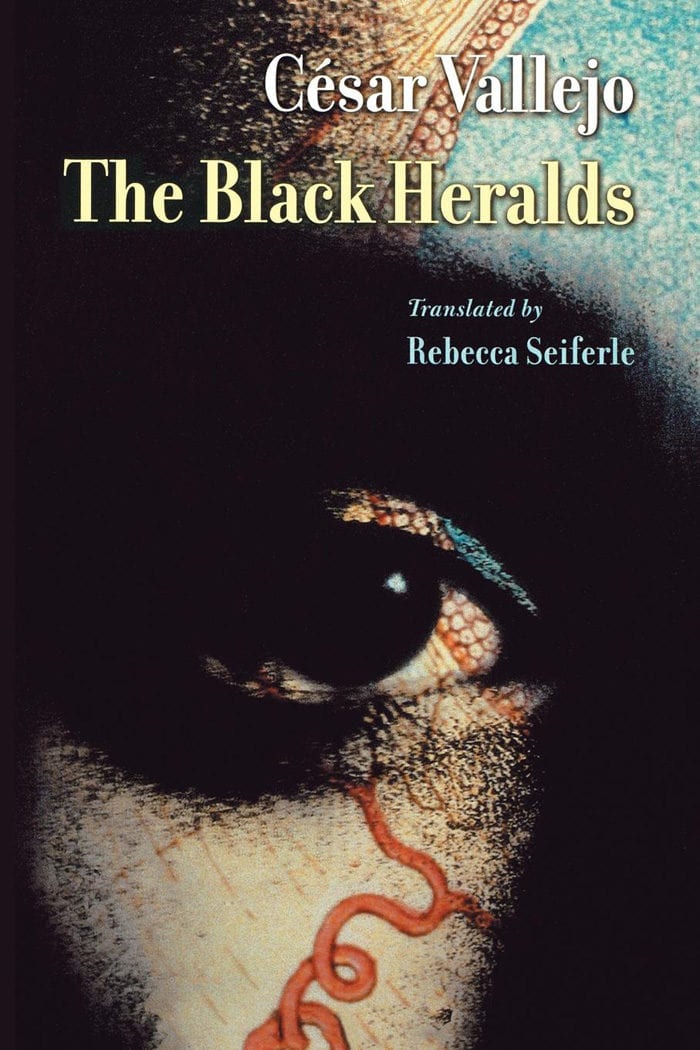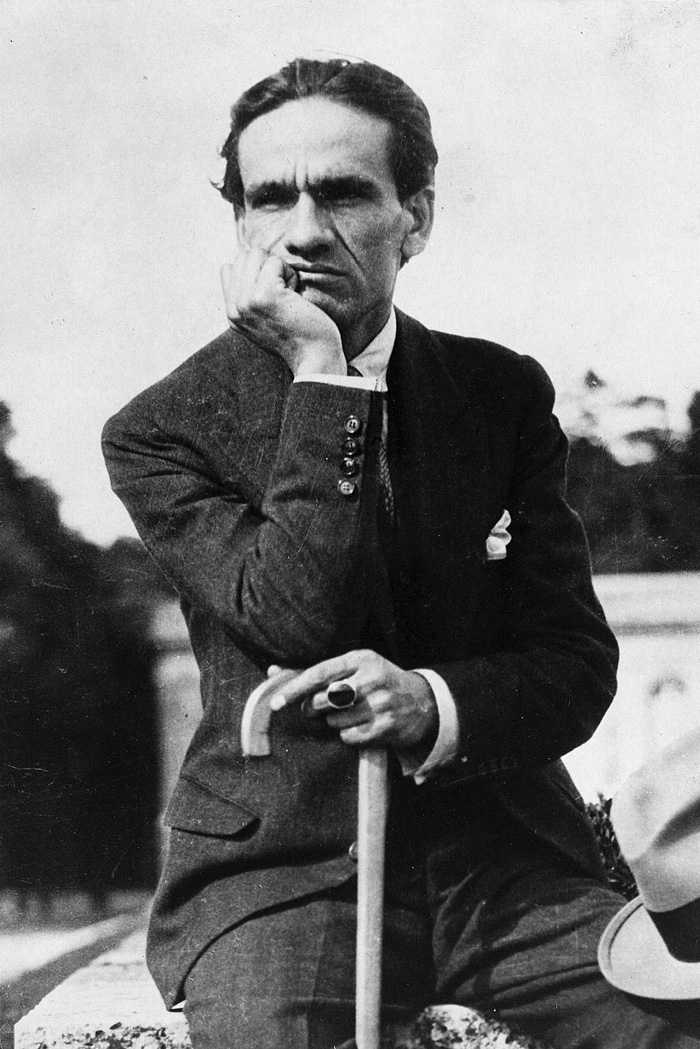
César Vallejo, one of the great Spanish-language poets of the twentieth century, merged radical politics, Latin American languages and indigenous consciousness to create a truly New World poetry. He wrote five books of verse but published only two collections during his lifetime: The Black Heralds (1919) and Trilce (1922).
A landmark in Latin American literature, The Black Heralds contains poems of varied style, from love sonnets in which Vallejo struggles to free his erotic life from the bounds of Spanish Catholicism to the linguistically inventive sequence of “Imperial Nostalgias,” where he ruthlessly satirizes the pastoral romanticism of Peruvian rural life and the treatment of natives.
In this bilingual volume, translator Rebecca Seiferle addresses previous translations of Vallejo’s poety. As she writes in her introduction, “Those poets who have translated Vallejo are poets with often feverish assumptions about poetic practice and its connection to being, who found in Vallejo fertile ground for the cultivation of their own poetic theory and practice… As I was drawn further and further into Vallejo’s own words, I began to have the sense that [his] work was still being colonized… He seems to me to be a much more intelligible poet, but also much more unknown, in his own terms.”
ISBN: 9781556591990
Format: Paperback
Reviews
“César Vallejo’s poems have an anguished power, a rebellious lexical energy and a wild, freewheeling emotionalism… Seiferle is wonderfully alert to the indigenous elements in Vallejo’s work.” —Edward Hirsch, Washington Post
“In The Black Heralds, Seiferle labors in her introduction and translations at freeing Vallejo’s work from what she calls the poetry of colonialism and its ‘tourist-like tropes.’ There is no doubt that Vallejo miraculously combined radical Marxist politics with a Latin American consciousness that incorporated indigenous languages (like Quechua) into an astonishing natural lyricism and symbolism. Also miraculous is the poems’ resistance to reductionist impulses; the mode of expression remains deeply romantic in its surreality… Translation of poems is always a challenge—translating the wild anarchical Vallejo may be close to impossible. Still, this book is a long overdue re-envisioning of Vallejo. It will fall to his readers, in Spanish and English, to ultimately judge this latest attempt at embodying him on the page.” —Carol Muske-Dukes, Los Angeles Times Book Review
“The word ‘complex’ only begins to describe César Vallejo (1892-1938) as seen in Rebecca Seiferle’s bilingual translation of the poems in his first book, The Black Heralds. Originally published in 1918, this blend of sex, sin, mysticism and myth is divided into six sections and includes everything from Vallejo’s disenchantment with his homeland and religion, to his father’s old age and his mother’s, brother’s and lover’s deaths.” —San Francisco Chronicle
“In the continuing struggle over who ‘owns’ César Vallejo’s work and who has or has not ‘colonized’ it, veteran translator Rebecca Seiferle presents Vallejo’s overlooked first book. Along with Pablo Neruda, Vallejo is one of South America’s mythical poets and has long been attractive to translators who approach his difficult Spanish with various styles. Seiferle presents a contemporary Vallejo by sticking to short stanzas, typical free-verse forms, and few digressions from the original language. This book is essential to Vallejo studies and sets the stage for his later, better known work.” —Bloomsbury Review
“Seiferle is a gifted poet herself, and she brings her exquisite sense of timing and precision to Vallejo’s poems. In her lucid introductory essay, she claims Vallejo’s work has been translated into English by American poets who impose their own ‘feverish assumptions about poetic practice’ on his work and have misrepresented the autochthonic nature of his poetic project, that is to say the indigenous or native foundation and impulses of his writing. She has clearly researched Vallejo’s work with sensitivity and insight in order to render the most authentic versions possible. For this reason, I trust her choices… I had forgotten how utterly moving Vallejo’s work can be, and I am grateful for this new and very fine translation.” —New Pages

